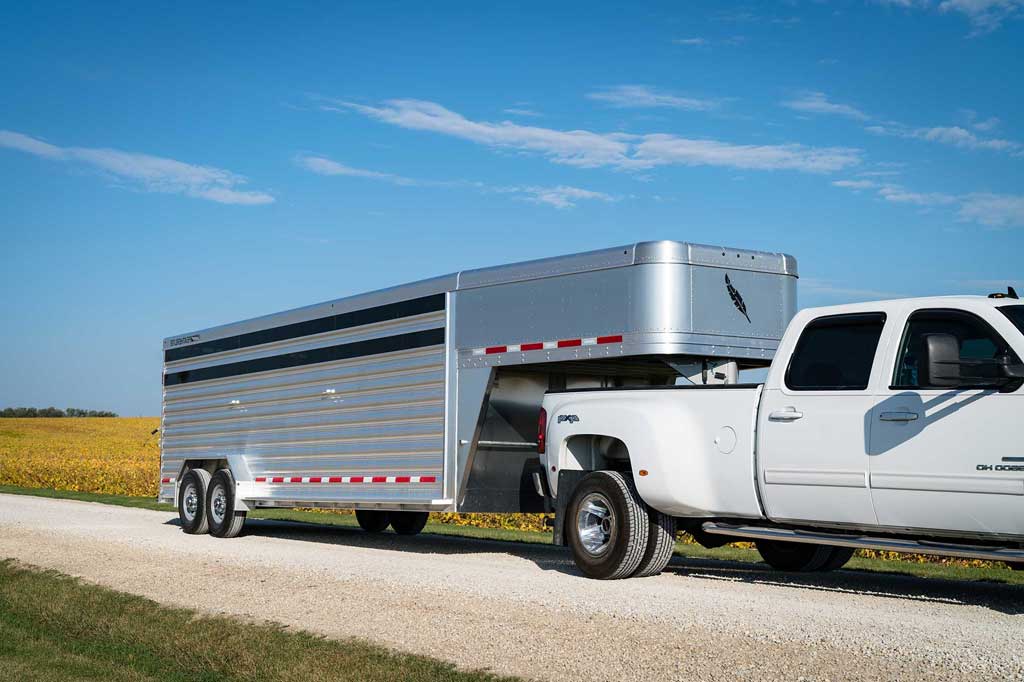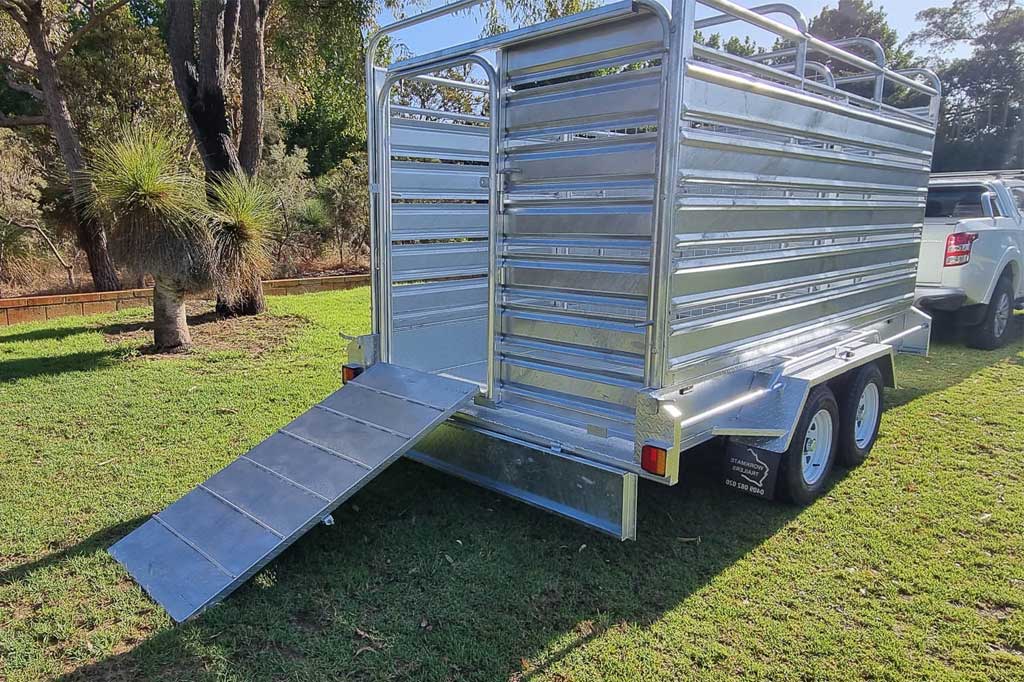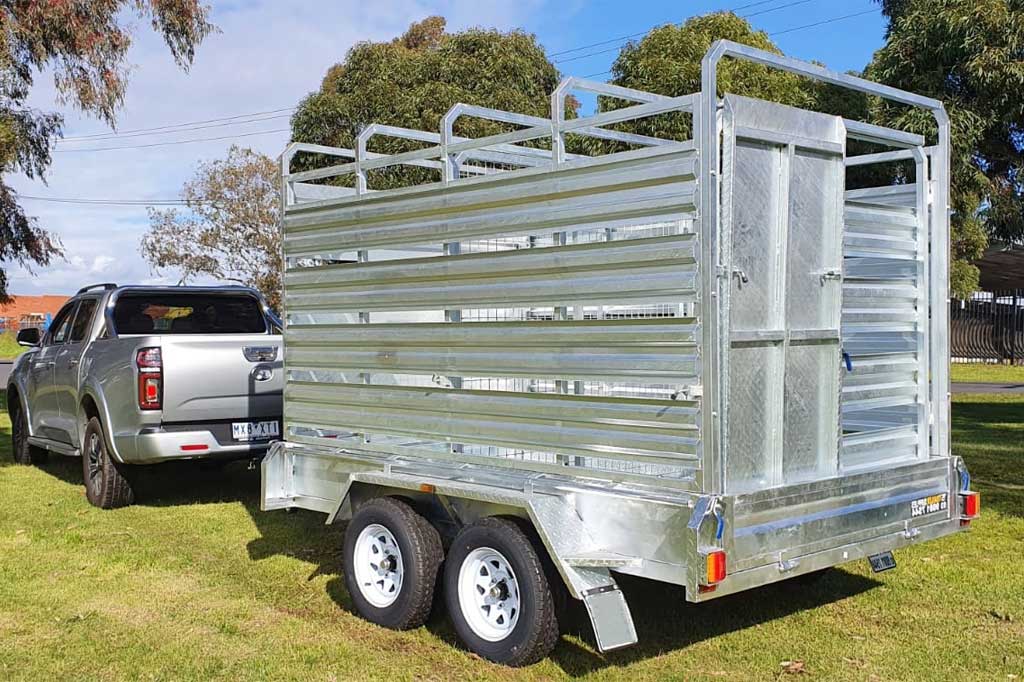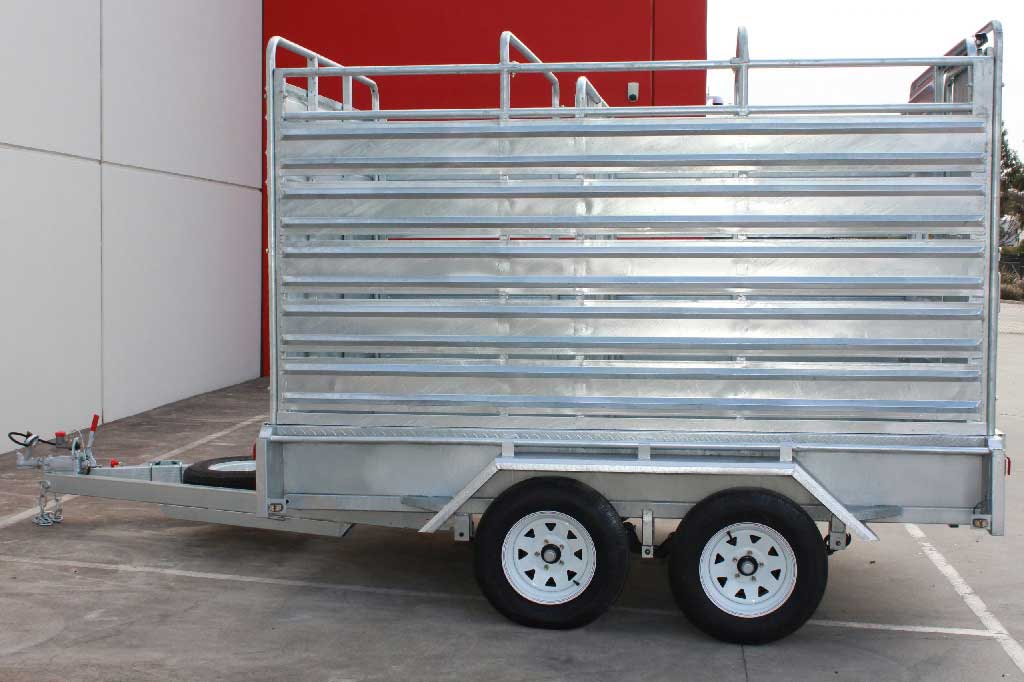Selecting the right cattle trailer for your farming operations is a critical decision that can impact the efficiency, safety, and welfare of your livestock during transport. With a variety of trailers available in the market, it’s essential to understand the nuances of each type to make an informed choice that aligns with your specific needs.
This guide will delve into the different types of cattle trailers, including goosenecks, bumper pulls, and stock trailers, and discuss key factors such as size, ventilation, flooring, durability, and price, to help you find the perfect match for your farm.
Types of Cattle Trailers

1. Gooseneck Trailers
Gooseneck trailers are favored for their stability and capacity to haul heavier loads compared to bumper pull trailers. They connect to a hitch mounted in the bed of a pickup truck, distributing weight more evenly and offering better maneuverability, especially on winding roads. Goosenecks are ideal for transporting a large number of cattle over long distances, as they provide more space and comfort for the animals.
2. Bumper Pull Trailers
Bumper pull trailers, also known as tag-along trailers, attach to the hitch of your vehicle, located near the bumper. Bumper pulls are suitable for small-scale farmers who transport livestock over shorter distances. While they are generally more affordable and easier to store, they have limitations in terms of size and weight capacity.
3. Stock Trailers
Stock trailers are versatile and can be either gooseneck or bumper pull. They are designed specifically for transporting livestock, with features like slatted sides for ventilation. Stock trailers come in various sizes, from small units capable of carrying a few animals to larger ones that can transport several head of cattle. The choice between a gooseneck and bumper pull stock trailer will largely depend on the volume of animals you need to transport and the vehicle you have available for towing.
Key Factors to Consider

1. Size
The size of the trailer is paramount. It must be large enough to accommodate your livestock comfortably but not so large as to be inefficient or difficult to maneuver. Consider the number of cattle you plan to transport at one time, their size, and the space required per animal to avoid overcrowding and stress.
2. Ventilation
Proper ventilation is important to ensure the safety of your livestock during transport. Adequate airflow prevents overheating and helps maintain a healthy environment. Look for trailers with sufficient ventilation options, such as side slats or windows, and consider the climate in your area when making your selection.
3. Flooring
The flooring of your cattle trailer should provide a non-slip surface to prevent injuries during loading, unloading, and transit. Many trailers come with rubber mats or ridged floors to enhance grip. Additionally, consider the ease of cleaning the flooring material to maintain hygiene standards.
4. Durability
Durability is essential for a cattle crate trailer’s longevity and the safety of your livestock. High-quality materials, such as hot-dip galvanized steel can withstand the rigors of frequent use and varying weather conditions. Inspect the construction quality, including welds, hinges, and door latches, to ensure they are robust and secure.
5. Price
Price is always a consideration. Investing in a higher-priced trailer that fulfills all your specifications may prove to be more economical over time, as opposed to buying a less costly but less robust model. Consider the trailer’s features, materials, and build quality in relation to its price to ensure you’re getting good value for your investment.
Making the Decision

Whether you opt for a gooseneck, bumper pull, or stock trailer, prioritize the factors that are most important to your operation, such as capacity, ease of use, animal welfare, and budget. It’s also wise to consult with other farmers or professional custom trailer manufacturer and read reviews to gather insights on the performance and reliability of different trailer models.
Before making a purchase, thoroughly inspect the trailer in person, if possible, to assess its condition and suitability for your needs. Consider the future growth of your farm as well; selecting a trailer that can accommodate expanding operations can save you from needing an upgrade too soon.
Conclusion
Selecting the right cattle trailer is a crucial decision that affects the efficiency and safety of your livestock transport operations. By understanding the different types available and considering key factors such as size, ventilation, flooring, durability, and price, you can make an informed choice that best suits your farm’s needs.
